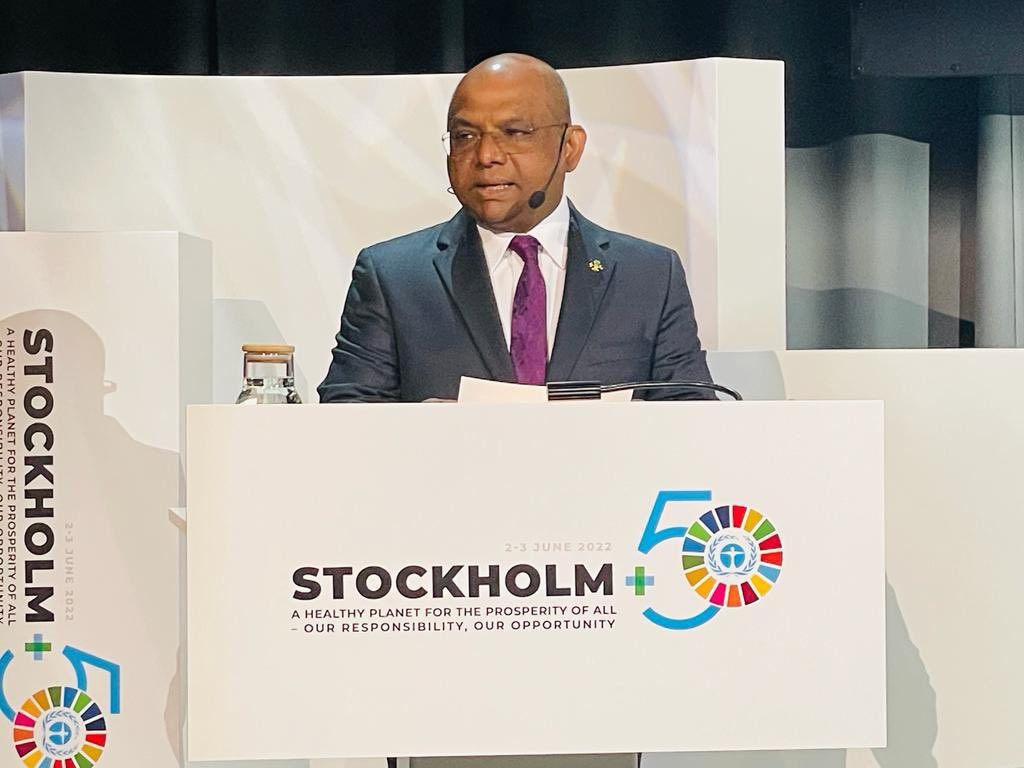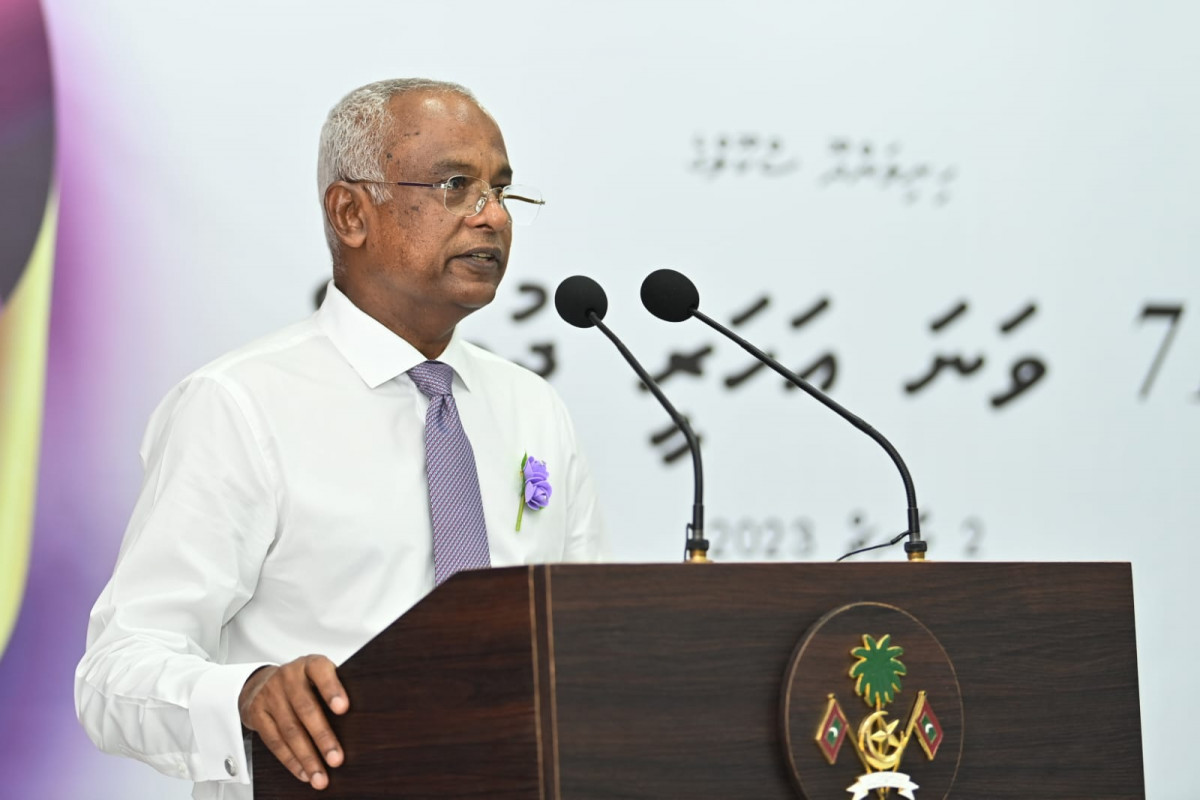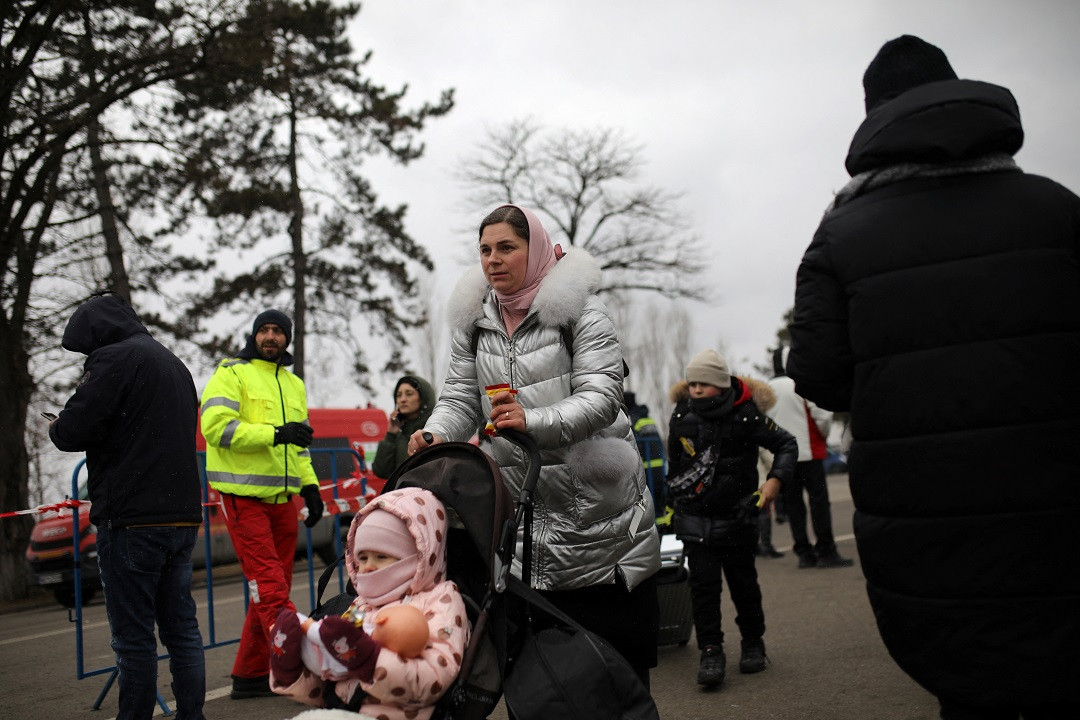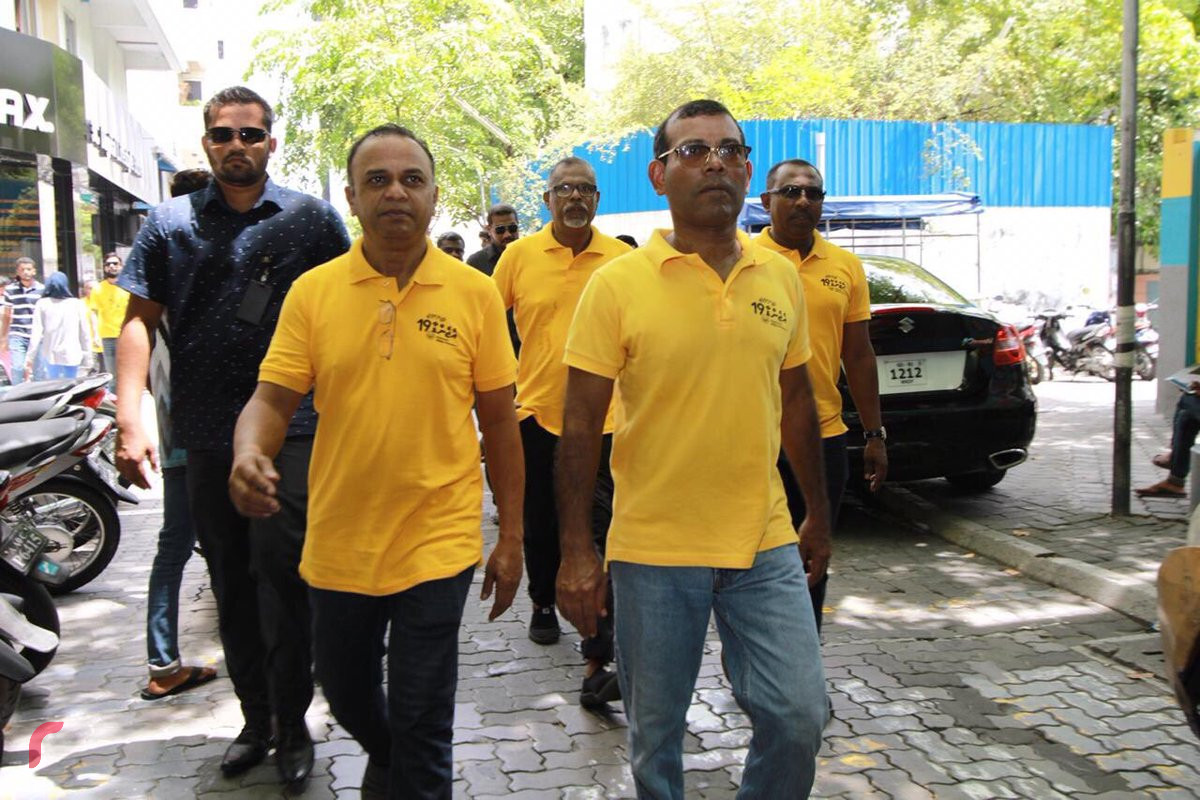Future workplaces must be free of stereotypes about women’s leadership abilities, says PGA
PGA Shahid ended his remarks by urging the people to fully use the opportunity to have a “constructive” dialogue on how a more gender equal recovery is ensured


PGA Abdulla Shahid’s Special Event at Stockholm+50 International Meeting – Achieving a sustainable and inclusive recovery from the COVID-19 pandemic: (Re)shaping economies for women
President of the 76th session of the United Nations General Assembly (UNGA), Abdulla Shahid has asserted that future workplaces must be free of harmful stereotypes about women’s leadership abilities.
The PGA, who also serves as the Minister of Foreign Affairs of Maldives, made this remark during his statement at the PGA’s Special Event at Stockholm+50 International Meeting; Achieving a sustainable and inclusive recovery from the Covid-19 pandemic: Reshaping economies for women.
Taking the podium, the PGA stressed that women are bearing a disproportionate share of the burdens caused by Covid-19, including in the labor market, adding that women are more likely than men to work in professions that put them on the frontlines of the pandemic, such as childcare and healthcare، according to available data.
This, the PGA said makes women more likely to have faced direct exposure to Covid-19, than men and are also more likely to have lost their employment in the past two years, even as they continue to carry the burdens of caregiving demands brought to the spotlight due to Covid-19.
The PGA said that this presented women with a stark choice of either maintaining their jobs or caring for their families.
Stressing that fewer women will regain work during the Covid-19 recovery efforts, Shahid noted that ILO projections anticipate that only 43.2 percent of the world’s working-age women will be employed in 2021, compared to 68.6 percent of working-age men.
Describing this to be a “clearly” unfair discrepancy, Shahid noted that the world has an obligation to move forward, to “reshape” work cultures, models and economies in a manner favorable for women.
The PGA went on to note that the workplaces of the future must be rooted in “equity” and also must be free of discrimination and “harmful” stereotypes about the skills, work, ethics, leadership abilities and intelligence of women.
As such, Shahid stressed that work environments must be free of barriers and biases that have been “historically” used to restrict opportunities for women, depress their income and even undermine their progress.
Stating that imparting gender equity practices will require interventions in the form of strong legal protections, robust enforcement mechanisms and deep structural and cultural change, the Maldivian foreign minister stated that it requires recognizing women’s special circumstances and the importance of implementing a care economy; one that includes women’s voices in the planning of response and recovery plans.
He said that the PGA’s Special Event at Stockholm+50 International Meeting; Achieving a sustainable and inclusive recovery from the Covid-19 pandemic: Reshaping economies for women offers a significant opportunity to identify strategies and policies that will ensure “greater” participation of women in the future of sustainable economies, especially in high impact sectors, such as food, energy and manufacturing.
This, the PGA said could include greater financing, or upskilling, or greater capacity building, including in the digital space.
PGA Shahid ended his remarks by urging the people to fully use the opportunity to have a “constructive” dialogue on how a more gender equal recovery and a more gender-equal world can be secured.






